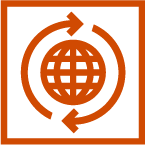Relectrify, completed an oversubscribed A$17 million funding round led by Silicon Valley-based At One Ventures and its existing investors Toyota Ventures, Australia’s Clean Energy Finance Corp., Energy Innovation Capital, GS Futures, Creative Ventures, NOAB. The investment would help Relectrify rollout battery storage systems featuring the CellSwitch technology in the US, Canada, Europe, Korea, China, and Japan.
29 May 2024
Relectrify





























